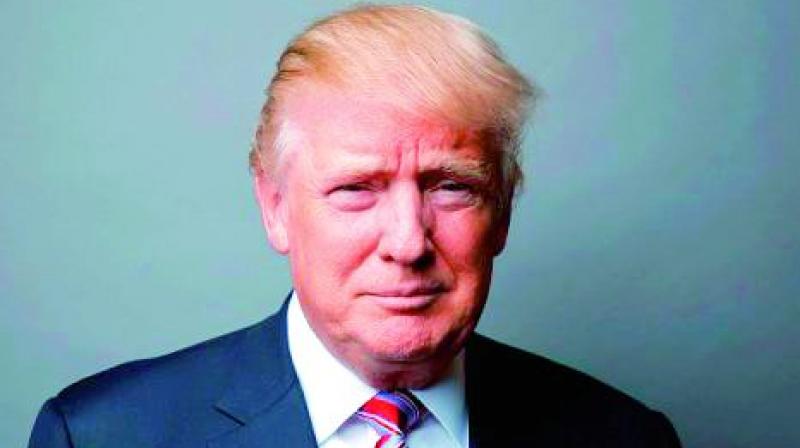Govts should not out files for partisan ends

On Febuary 15, President Donald Trump alleged that former president Barack Obama was on the brink of starting a war with nuclear-armed North Korea. This is utterly false. “We were not on the brink of war with North Korea in 2016,” Ben Rhodes, Obama’s deputy national security adviser, wrote on Twitter.
In June 1996, then FBI director Louis Freeh scathingly censured the White House for its “egregious privacy violations” in asking for and securing secret background files on hundreds of Republicans.
Two questions arise: one of confidentiality and the other of state papers. Trump alleged that Obama confided in him in a conversation. This stands, if anything, on a higher footing than information gleaned from an official file of the previous government. Broadly, the rule is that a successor government cannot see it.
As India’s external affairs minister, Atal Behari Vajpayee committed a similar lapse on a still relevant matter. In April 1978, he publicly complained that Indira Gandhi had not taken parliament or even her cabinet into confidence about her understanding with Zulfikar Ali Bhutto at Shimla. He argued that India’s stand had always been that Pakistan has no locus standi on the Kashmir issue; but after the Gandhi-Bhutto talks Kashmir was listed in the Shimla pact. Why then this vital concession? The talks had been written off as having failed. How come, then, the last-minute accord? Vajpayee wanted a full account of the talks Gandhi had at Shimla.
He alleged specifically that there was “some sort of secret understanding” between prime minister Gandhi and president Bhutto that led to an agreement, which both signed in July 1972. In a talk with visitor Indian journalists, academics and others in February 1984, Gen Ziaul Haq made the same suggestion. This writer was a member of the group. Present were foreign minister Sahibzada Yaqub Khan and additional secretary Abdul Sattar.
The day after Vajpayee spoke, the official spokesman of his ministry denied it, saying, “I do not know about it. I am not competent to talk about it. It is not on record anywhere.” He suggested that the parties directly concerned may be approached. Gandhi denied the charge.
Vajpayee returned to the charge in the debate on the grants for his ministry in the Lok Sabha later that month. He had gone through the documents relating to the discussion and had also talked to knowledgeable people. Piecing together the evidence, he felt there had been some sort of secret understanding “in confidential conversation between Gandhi and Bhutto”.
We are not concerned here with the existence of that understanding. In 1992, the controversy was revived between two survivors of the Shimla talks. P.N. Dhar, Gandhi’s principal secretary, began it by alleging that there was such an understanding. Abdul Sattar denied it. Detailed versions occur in Dhar’s memoirs and Sattar’s work on Pakistan’s foreign policy.
The issue here is different. What right had Vajpayee to use the papers of a previous government for manifestly partisan ends? In law, official records are the property of the union or the state. No government has a right to dig up old records and publish them for partisan ends.
In January 1983, prime minister Margaret Thatcher stated the rule thus: “Ministers of a current administration may not see documents of a former administration of a different political party, other than documents that can be regarded as being in the public domain, official communications to overseas governments and written opinions of the law officers. Ministers... may normally see documents of a former administration of the same political party, whether or not they saw those documents as members of the same administration, provided that the requirement to see them arises in the course of their ministerial duties.”
What if a minister, flouting the rule, asked for the files? The custodian of the file, the civil servant, should refuse. Appearing before the select committee on parliamentary questions in February 1972, cabinet secretary Sir William Armstrong said, “Ministers of a current government are not entitled to ask to see the papers of a previous administration. That is a convention. There is no legal basis for it but it is one which, in my experience, each government has accepted.” He opined that civil servants must refuse an improper request for a file.
Another cabinet secretary, Lord Hunt, endorsed the rules in the light of a debate on the subject in the House of Commons in July
1982: “Current ministers may not see the cabinet papers of former ministers of a different political party.”
B.K. Nehru opined that the same rules hold good in India. Its enforcement depends on the spine of the keeper of the files, ie the civil servant. That spine has weakened in the last few decades.
By arrangement with Dawn

